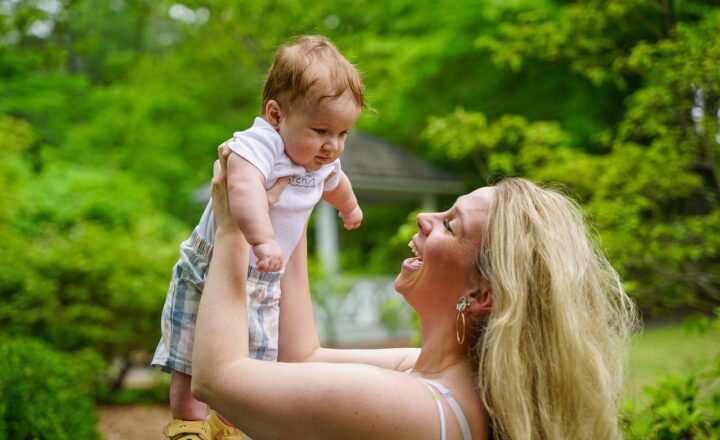Parenting Through the Decades: How Society’s View Has Changed
November 19, 2024

Parenting is a dynamic practice heavily influenced by the societal context in which it occurs. Over the years, the understanding of what it means to parent has shifted dramatically, shaped by cultural influences, historical events, and evolving knowledge about child development. In this article, we will explore the shifting paradigms of parenting over the decades, examining key changes in views, styles, and societal expectations from the 1950s to the present day.
1. The 1950s: The Era of Conformity
The 1950s marked a time of stability and conformity in many Western societies. The nuclear family was glorified, with strict gender roles dictating the behavior of mothers and fathers. Mothers were primarily responsible for child-rearing, while fathers served as the breadwinners. Parenting styles were authoritative but lacked the warmth that we often associate with modern parenting today.
Some key characteristics of 1950s parenting include:
- Disciplinary Approach: The primary focus was on obedience and respect for authority, often administered through strict discipline.
- Limited Emotional Expression: There was a cultural expectation that parenting should be practical rather than emotional, leaving little room for expressing vulnerability or feelings.
- Cultural Values: Emphasis was placed on traditional values, with parents teaching their children conformity and social etiquette.
The impact of these practices influenced not only individual children but also shaped the very fabric of society.
2. The 1960s and 1970s: The Counterculture Movement
As the social upheaval of the 1960s and 1970s emerged, parenting began to evolve significantly. The counterculture movement challenged traditional norms, and new ideas about family and child-rearing took root. These decades saw a growing interest in liberal ideologies, self-expression, and psychological theories that emphasized the importance of bonding and emotional connection.
Major developments included:
- Questioning Authority: Children were encouraged to think for themselves and express their opinions. This shift contributed to a gradual softening of authoritative parenting styles.
- The Rise of Psychology: Psychological theories entered the mainstream, with many parents adopting principles from child psychology, such as understanding child development stages and emphasizing emotional nurturing.
- Increased Gender Roles Fluidity: There was a gradual questioning of gender roles, with more fathers participating in childcare responsibilities and mothers entering the workforce.
This decade set the stage for a more flexible approach to parenting, laying the groundwork for future generations.
3. The 1980s and 1990s: The Rise of Individualism
The 1980s and 1990s saw the emergence of individualism in parenting styles. The formalization of parenting techniques became popular, with the publication of numerous parenting books offering advice on different styles. During this period, parents started emphasizing personal growth for both themselves and their children.
Some notable trends from this era include:
- Authoritative Parenting: A more balanced approach emerged, combining authority with warmth. Parents began to adopt authoritative parenting styles that encourage independence while establishing clear boundaries.
- Increased Focus on Personal Development: Parents became increasingly involved in their children’s activities, from sports to arts, in an effort to foster individual strengths and interests.
- Communication Emphasis: With the belief that open communication promotes better behavior, parents prioritized dialogue, encouraging their children to express their thoughts and feelings.
This era set a new precedent for active parenting, focusing on emotional intelligence and personal development.
4. The 2000s: Technology and Parenting
The dawn of the new millennium brought a technological revolution that transformed many aspects of everyday life, including parenting. Parents started facing new challenges and opportunities in raising children amid the digital age. The introduction of technology into homes fundamentally altered how families operated.
Key aspects of parenting in the 2000s include:
- Digital Parenting: Parents began addressing issues related to screen time, online safety, and internet-based relationships, requiring new skills in managing their children’s technology use.
- Better Access to Information: With the rise of the internet, parents had more access to diverse parenting philosophies and resources, enabling them to make informed decisions.
- Work-life Balance Challenges: As more mothers entered the workforce, discussions around work-life balance became prevalent, leading to new family dynamics and cooperative parenting practices.
Technology fundamentally reshaped the family landscape, making way for a new era of parenting.
5. The 2010s to Present: Modern Parenting and Diversity
In the last decade, parenting has seen even more significant transformations. With a focus on inclusion and diversity, the modern family unit reflects distinct structures and traditions. The understanding of mental health and well-being has also shifted, emphasizing the emotional needs of both parents and children.
Current trends in modern parenting include:
- Focus on Mental Health: Parents are increasingly aware of the significance of their mental well-being as a key factor in effective parenting, resulting in more discussions around mental health issues.
- Inclusive Parenting Styles: Families of various structures, including single-parent families and same-sex parents, have gained greater visibility and representation, leading to more inclusive parenting concepts.
- Emphasis on Child Autonomy: There’s a growing trend toward giving children more autonomy and agency in their decision-making, with parents fostering independent thought and critical thinking skills.
Modern parenting is characterized by recognition and celebration of diversity, promoting a more holistic and inclusive approach to raising children.
Conclusion
The evolution of parenting through the decades illustrates how societal values and understanding of child development influence parenting practices. From the strict norms of the 1950s to the flexibility of the modern era, parenting continues to adapt to cultural shifts, technological advancements, and growing awareness of mental health.
As we move into the future, it’s important to recognize that parenting is not a one-size-fits-all endeavor. While individual styles may vary, the common thread remains the desire to nurture and support the next generation in a rapidly changing world. Understanding this historical context can empower parents today to make informed choices that reflect their values and priorities as they navigate the complexities of modern child-rearing.






